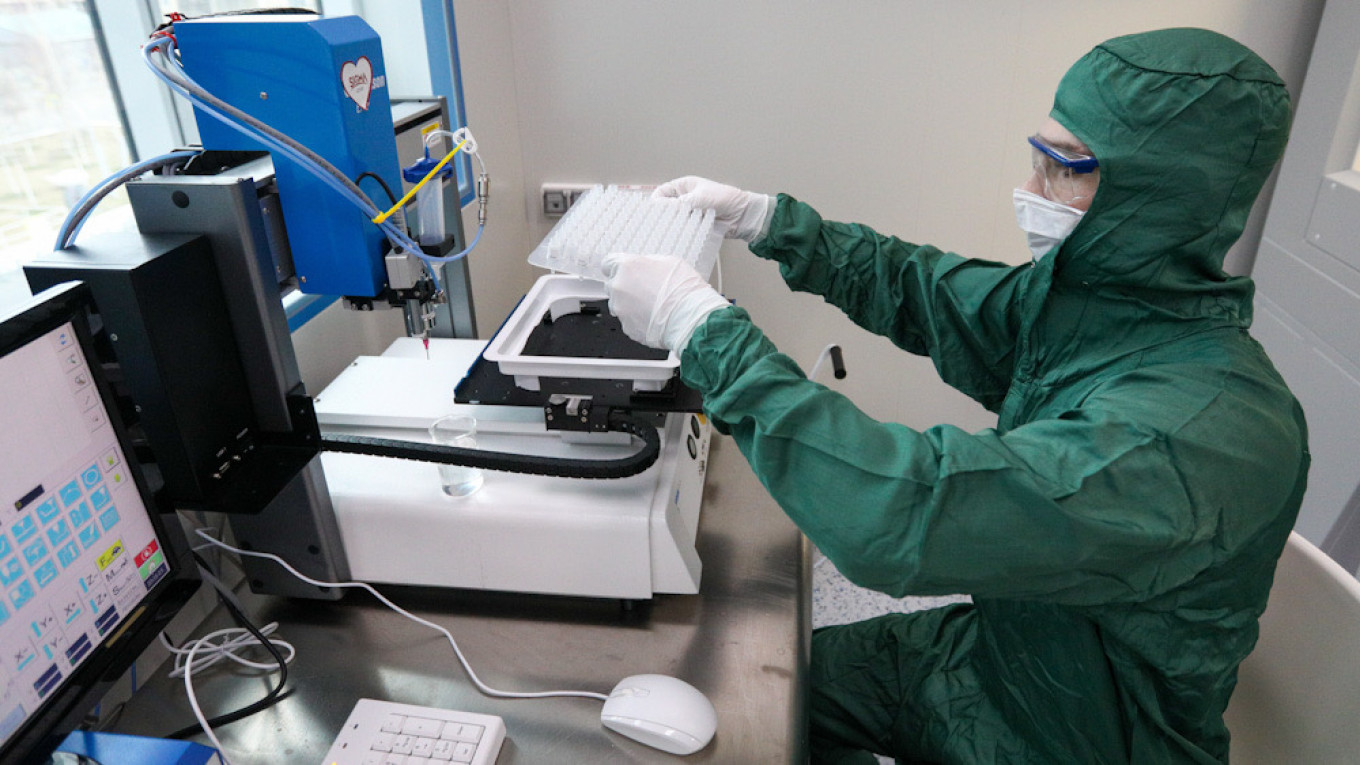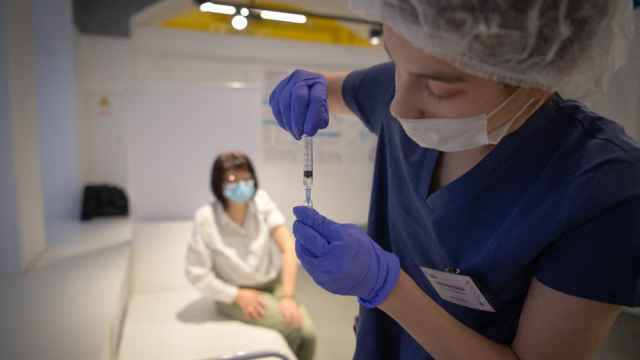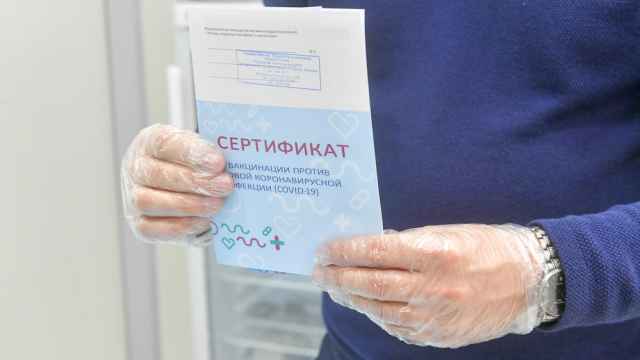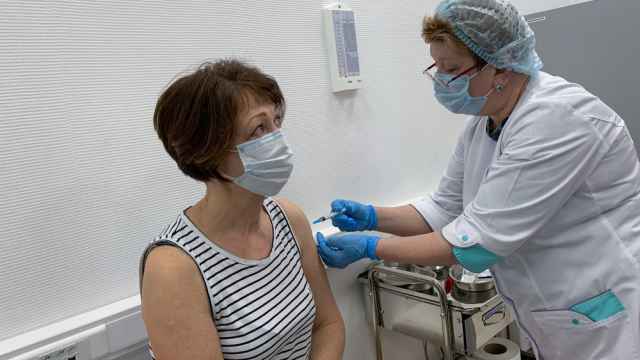A Russian military research unit that was involved in the development of Sputnik V is working on a new coronavirus vaccine in the form of chewing gum, the RBC news website reported Friday.
The Defense Ministry’s 48th Central Research Institute collaborated with the state-run Gamaleya Research Institute in Moscow to develop and trial Sputnik V last year. Russia, facing accusations of rushing human trials, touted the adenoviral vector vaccine as the world’s first to be approved for widespread use.
Citing an unnamed Defense Ministry source and confirmation from the 48th Central Research Institute’s director, RBC said “work is underway” toward developing a mucosal Covid-19 vaccine in the form of chewable tablets and pastilles.
“After testing, the drug will be included in various treatment and prevention regimens for coronavirus,” the source was quoted as saying.
Col. Sergei Borisevich, who heads the 48th Central Research Institute, confirmed work on the new vaccine but did not specify what stage it was at.
Russia has registered a total of four coronavirus vaccines and has reached agreements with close to 70 countries on selling Sputnik V or sharing the technology to manufacture it. Moscow’s active efforts to market the two-shot vaccine around the world has been viewed by critics as an attempt to wield it as a soft-power tool.
The United States last summer blacklisted the 48th Central Research Institute and its facilities with two other Russian military and civilian institutions over their alleged involvement in research of chemical and biological weapons.
The licensing restrictions on U.S. companies from doing business with the blacklisted entities are considered less strict than sanctions.
A Message from The Moscow Times:
Dear readers,
We are facing unprecedented challenges. Russia's Prosecutor General's Office has designated The Moscow Times as an "undesirable" organization, criminalizing our work and putting our staff at risk of prosecution. This follows our earlier unjust labeling as a "foreign agent."
These actions are direct attempts to silence independent journalism in Russia. The authorities claim our work "discredits the decisions of the Russian leadership." We see things differently: we strive to provide accurate, unbiased reporting on Russia.
We, the journalists of The Moscow Times, refuse to be silenced. But to continue our work, we need your help.
Your support, no matter how small, makes a world of difference. If you can, please support us monthly starting from just $2. It's quick to set up, and every contribution makes a significant impact.
By supporting The Moscow Times, you're defending open, independent journalism in the face of repression. Thank you for standing with us.
Remind me later.






